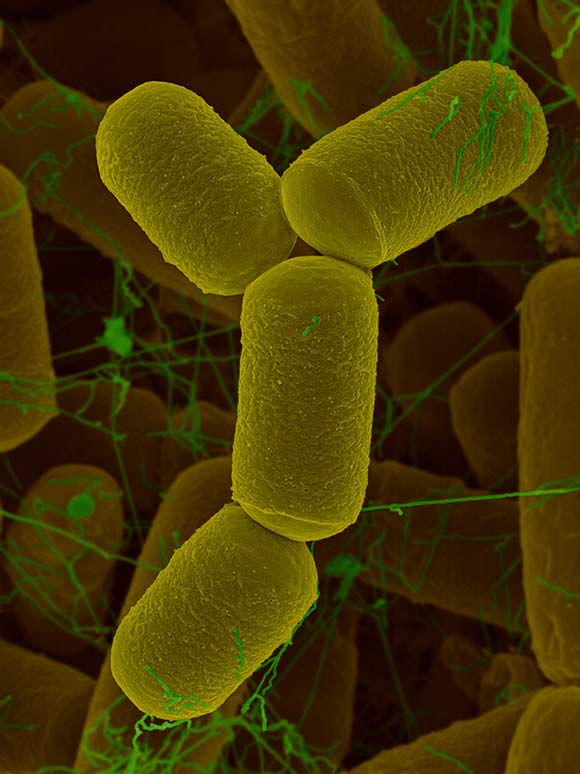Unique intestinal life
Bacteria make up the largest portion of intestinal microbiota. A much smaller portion is made up of other microbes, such as fungi and archaea. Everyone has unique intestinal microbiota that strongly depends upon genetic factors and lifestyle. Think of it as your microbial fingerprint.
You are what you eat
Everyone has a different, specific composition of microbial species in their intestines. The composition remains relatively stable throughout your lifetime. But the ratio between the species (the number of each particular sort) can change quickly. Scientists have discovered that a change in your diet will be reflected in your intestinal microbiota within a few days. For example, if you switch to a diet full of meat and cheese, the number of bacteria that break down plant-based foods will decrease significantly. Do try to eat as many vegetables as possible, though. The bacterial species that break down plant fibres keep the intestinal population stable, and also take care of the intestinal walls.
Gas producers
Fungi, archaea and viruses also populate your intestines, in addition to bacteria. Special archaea, known as methanogens, primarily live on the waste products of intestinal bacteria. They turn hydrogen (H2), which the intestinal bacteria secrete, into methane (CH4). You get rid of that methane when you fart. By the way, farts are primarily composed of ‘normal’ air. Just like intestinal bacteria, your intestinal archaea and –fungi are impacted by the presence or absence of other intestinal microbes, and by your diet.

The methane-producing archaea Methanobrevibacter smithii - magnified 5,000 times.
Viral helpers
If you thought that the 100 trillion bacteria in your intestines was a lot, then prepare to be blown away. Recently, it was discovered that the body is full of even larger numbers of bacterial viruses, also known as bacteriophages. These bacteriophages attack bacteria, not human cells. You probably have ten times more bacteriophages in your body than bacteria. Researchers even believe that bacteriophages help our immune systems by killing bacteria that are becoming too dominant in our intestines.

A bacterial virus, bacteriophage T4, is parasitic on E. coli.
